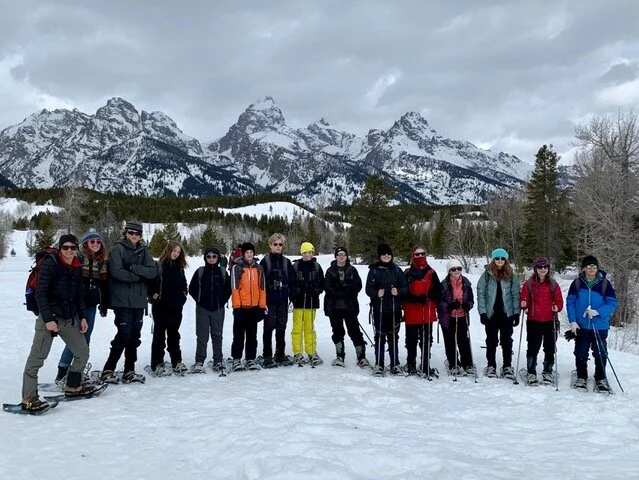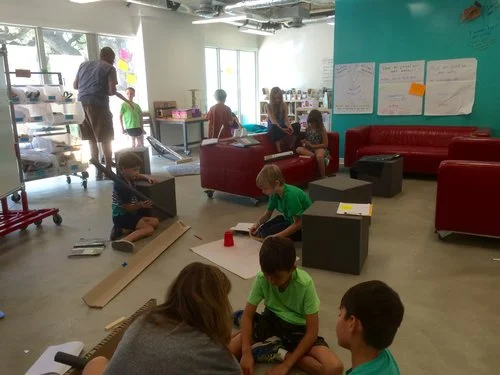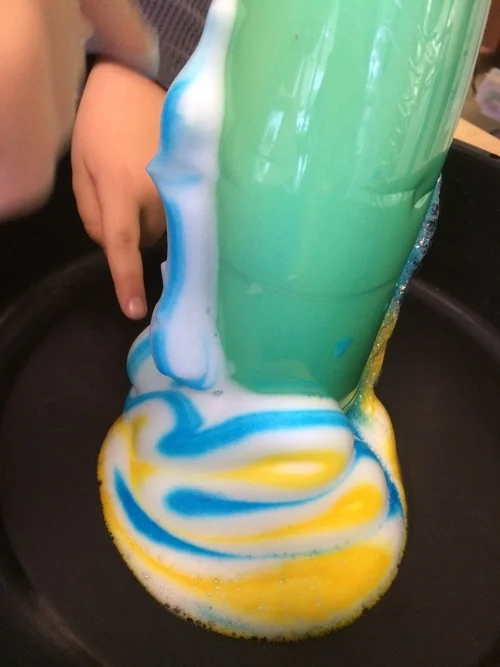It was 9am on Monday of Build Week 15, and learners were already saddling up to head for the park – not yet sure what they’d be making across the week. When they arrived at the park, teachers handed each team two model gliders: one larger one made of foam and one smaller made of balsa wood. Then, equipped with a clipboard, three strings of varying lengths, basic information about gliders and two blank data tables, teams set off to run three test flights on each glider, measuring the distance of each trial and observing the differences in the designs of the gliders. By then, they’d gotten the picture: this week, they’d be designing for flight.
The “bird’s-eye-view” of our plan for the week might be helpful for readers: Teams design, build, and test small-sized gliders to maximize flight distance and an aerodynamic ratio, applying their knowledge of fluid dynamics to its role in flight. Teams walk themselves through the entire engineering design process, from brainstorming to drafting, including team-driven research (physics of aerodynamics and glider components that take advantage of that science), creating materials lists, constructing, testing and evaluating—all within constraints, and concluding with a final launch day/competition.
Read More






